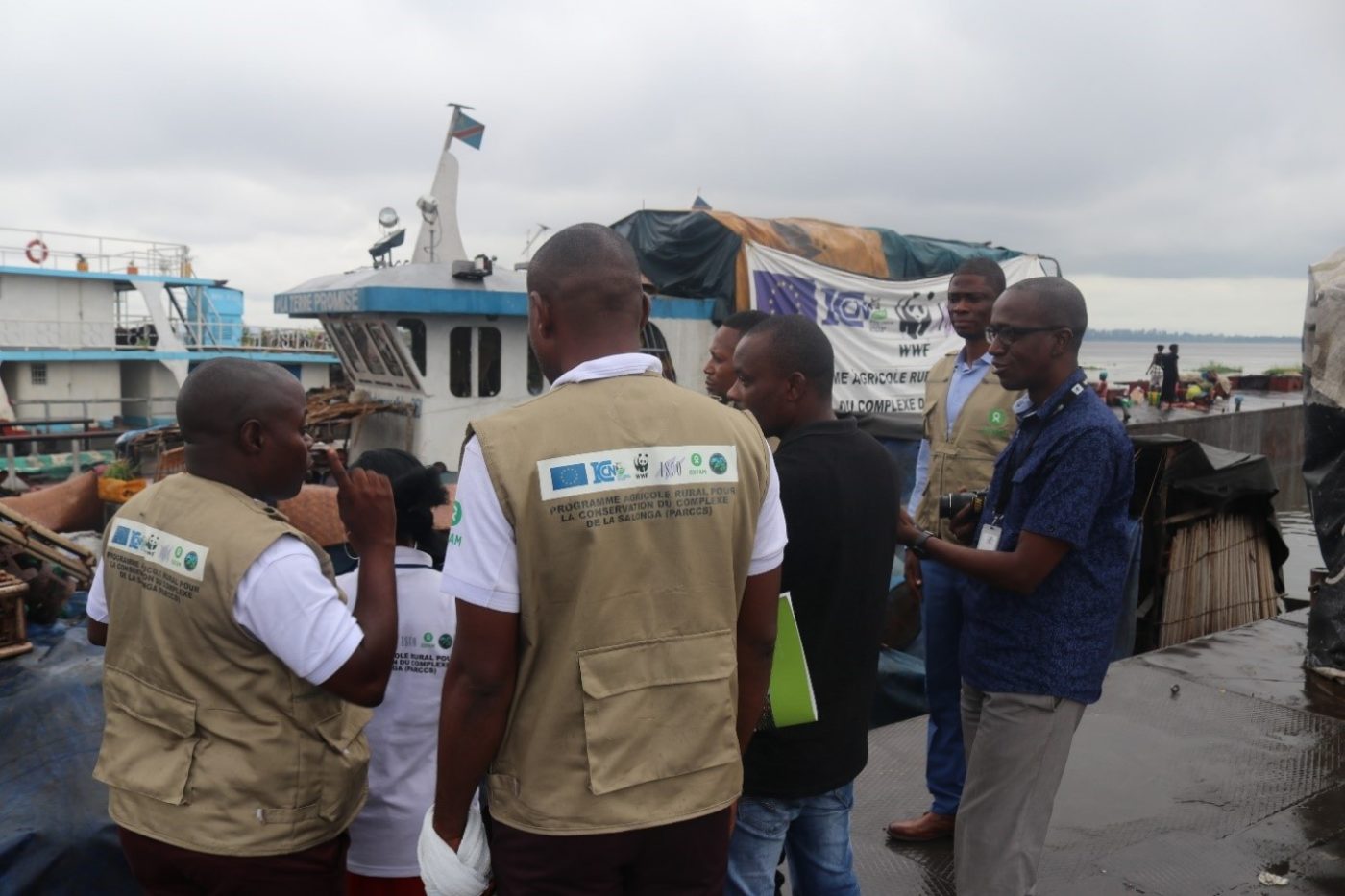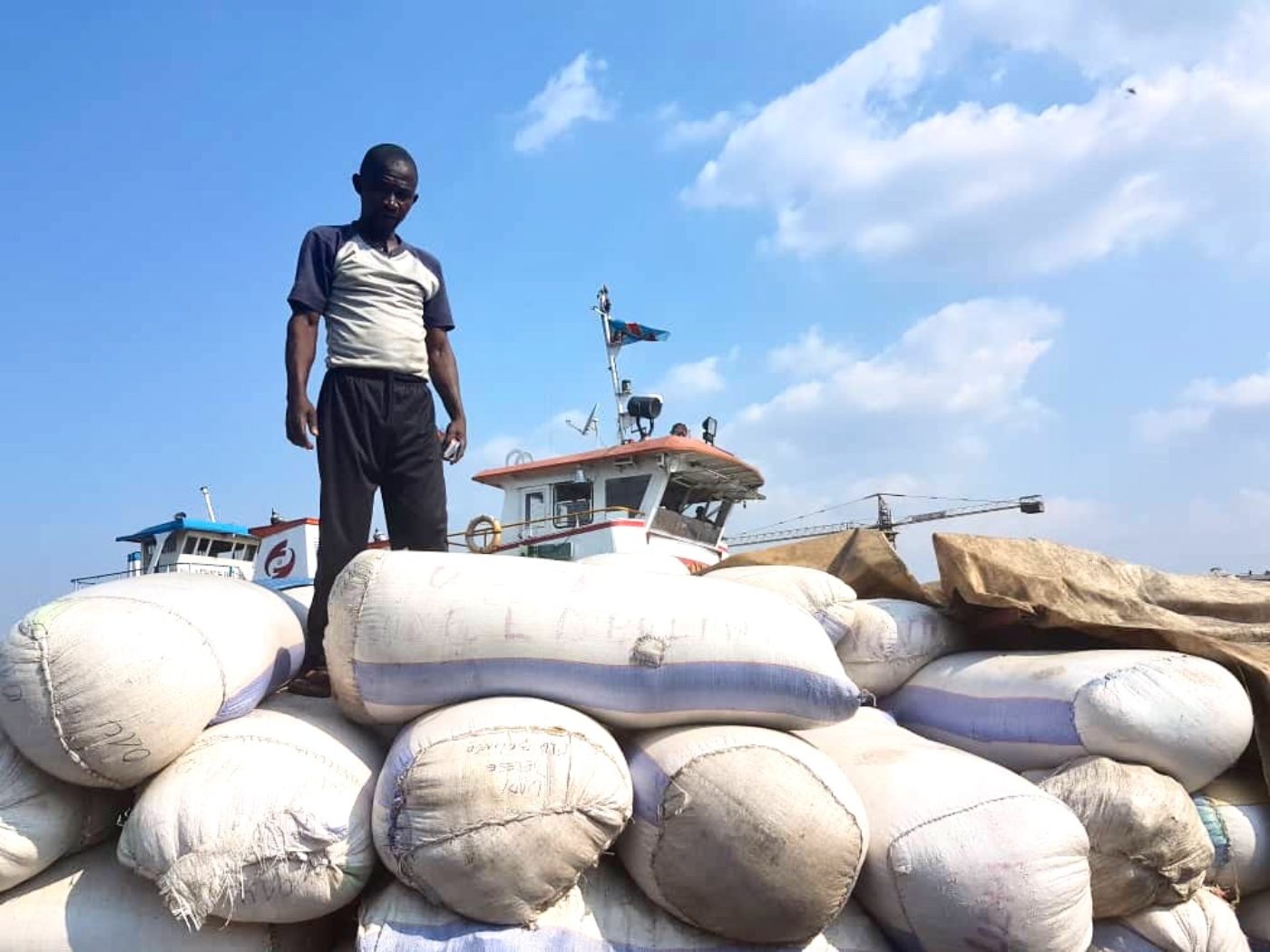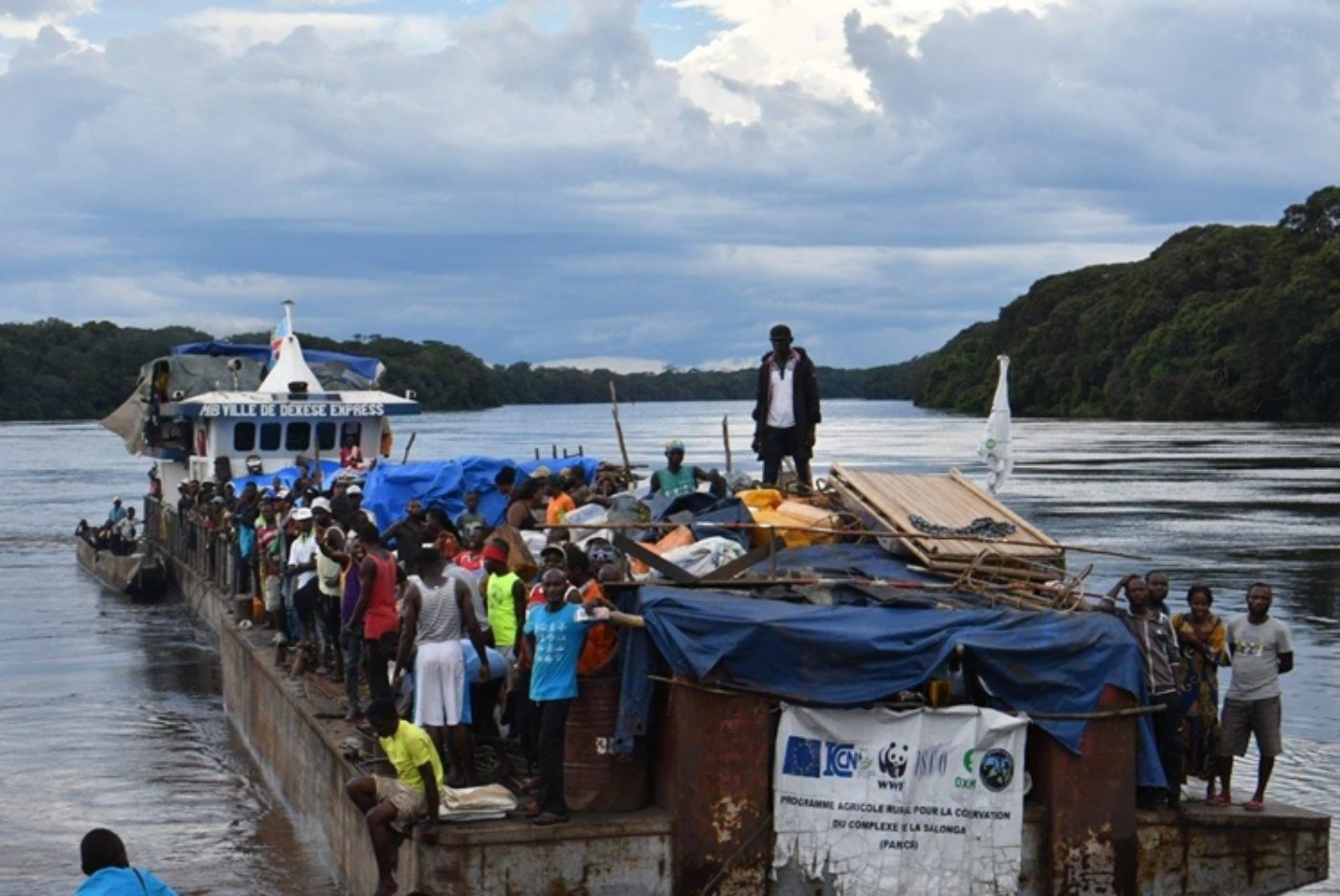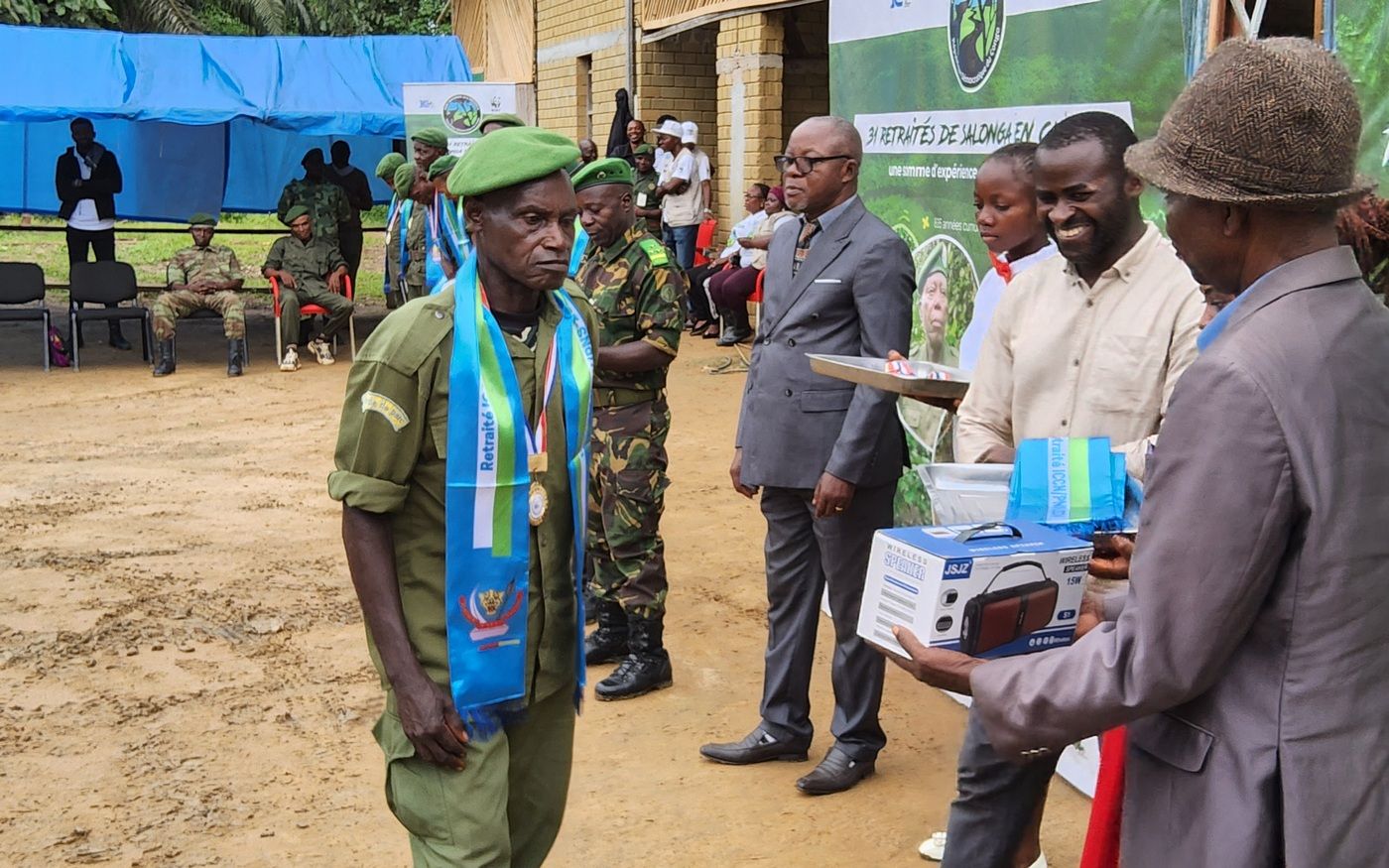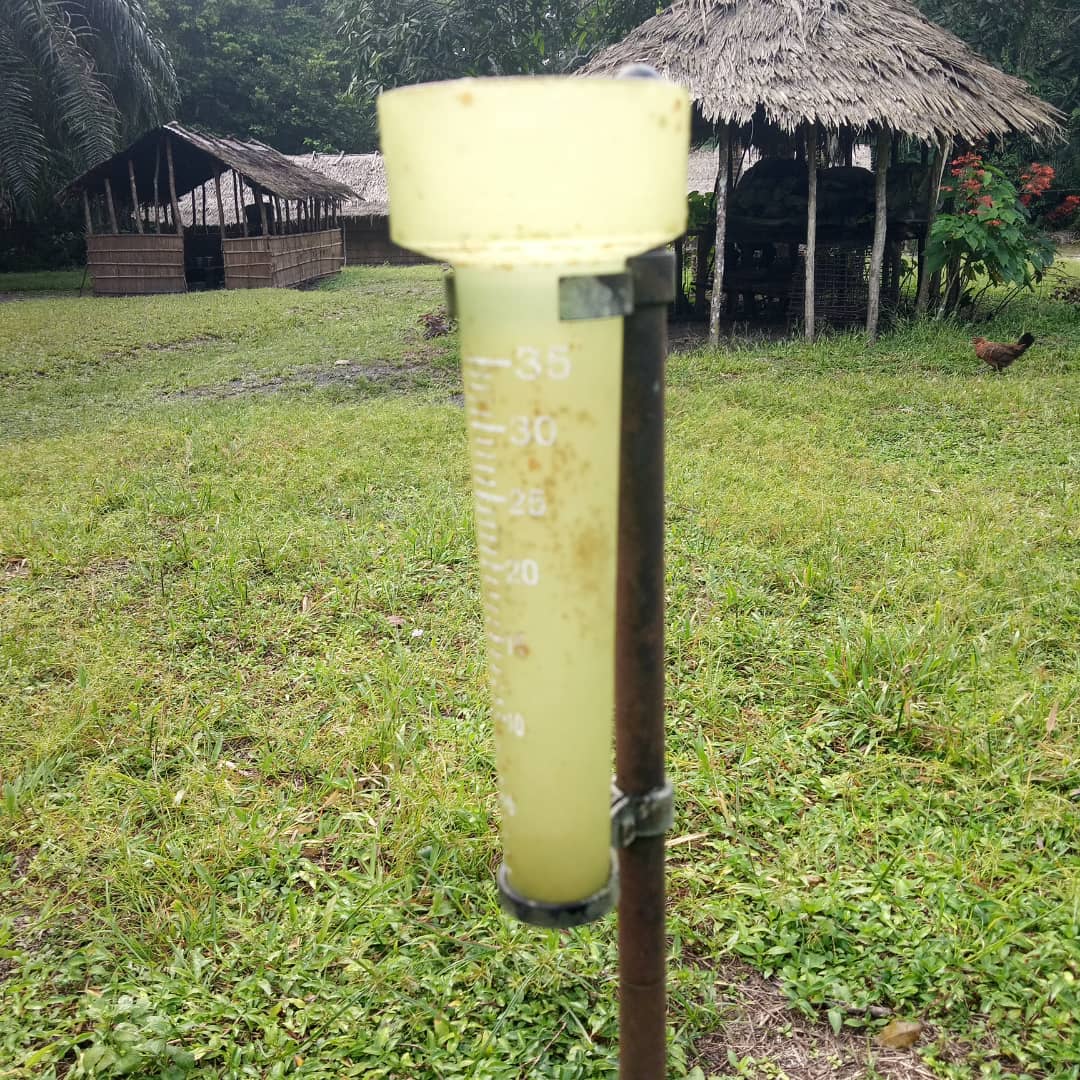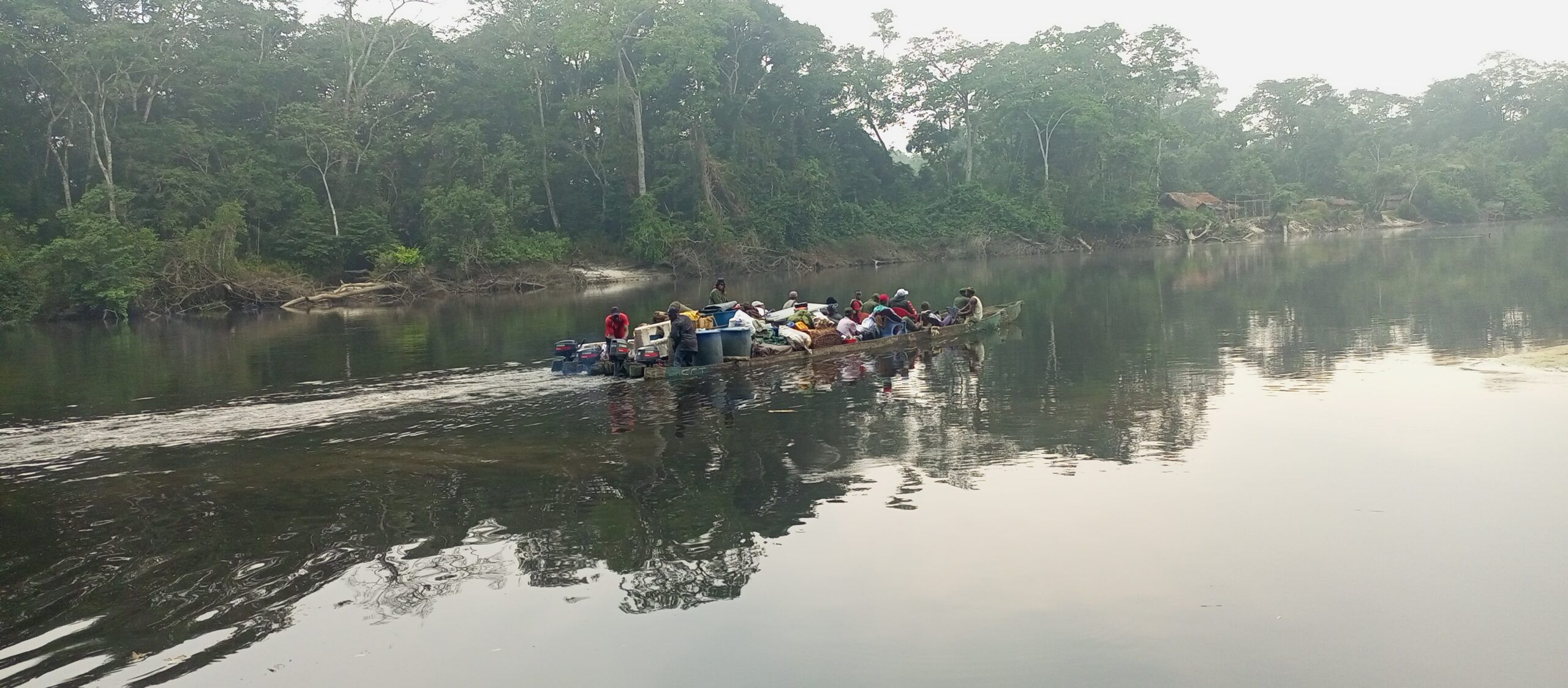A long journey from the fields to the market
After a long boat trip, a group of farmers supported by Salonga National Park partners under the Rural Agriculture and Conservation Program of the Salonga Complex (PARCCS) finally arrived in Kinshasa on October 2, 2019.
The boat started its journey on August 15 from Kole on the Lukenie River in the Sankuru Province. It then reached loading points set up by project partner Oxfam in Itedji, Braza, Bambole, and Dekese, which are situated in the Kasai province’s part of the Lukenie river. Additionally, the boat stopped in the villages of Bongimba and Dika in the Mai Ndombe province in order to load additional goods.
The participating farmers come from the periphery of Salonga National Park. Traditionally, these people obtained a large share of their food supply, e.g. bushmeat, from the park. The central idea of PARCCS is to contribute to the protection and appreciation of Salonga National Park while increasing the positive economic benefits for the local populations: protecting the park, but also taking care of the people.
PARCCS thus provides agricultural equipment, seeds and support to farmers’ organizations organized within Local Development Committees (CLD). Improved and profitable agriculture should thus make the park itself less attractive as a source of revenue.
However, the region is notoriously difficult to access. Although new and more efficient farming methods can help increase agricultural production, selling the products remains challenging as goods still need to be transported to the markets. To help overcome this difficulty, Oxfam provides support to farmers by facilitating the transport of their agricultural products towards points of sale and consumption.
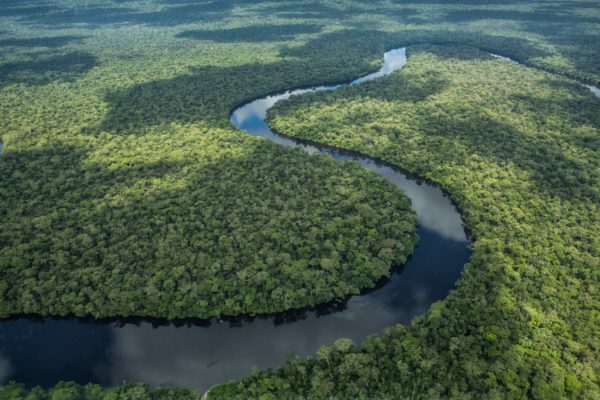
A long boat journey separates the Salonga farmers from the capital Kinshasa, where agricultural goods achieve higher prices than back home.
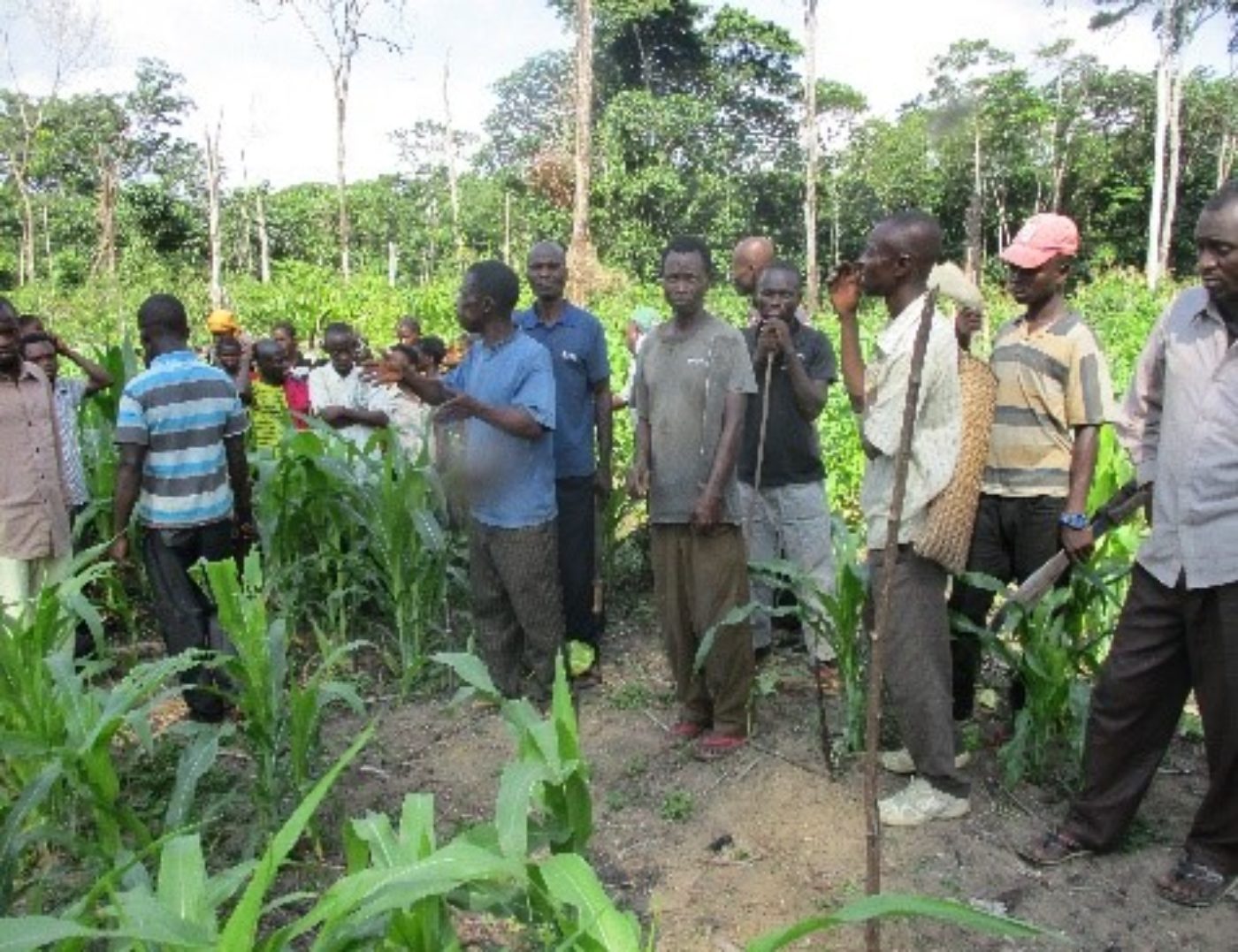
Recipients of seeds during a visit at a farmer field school.
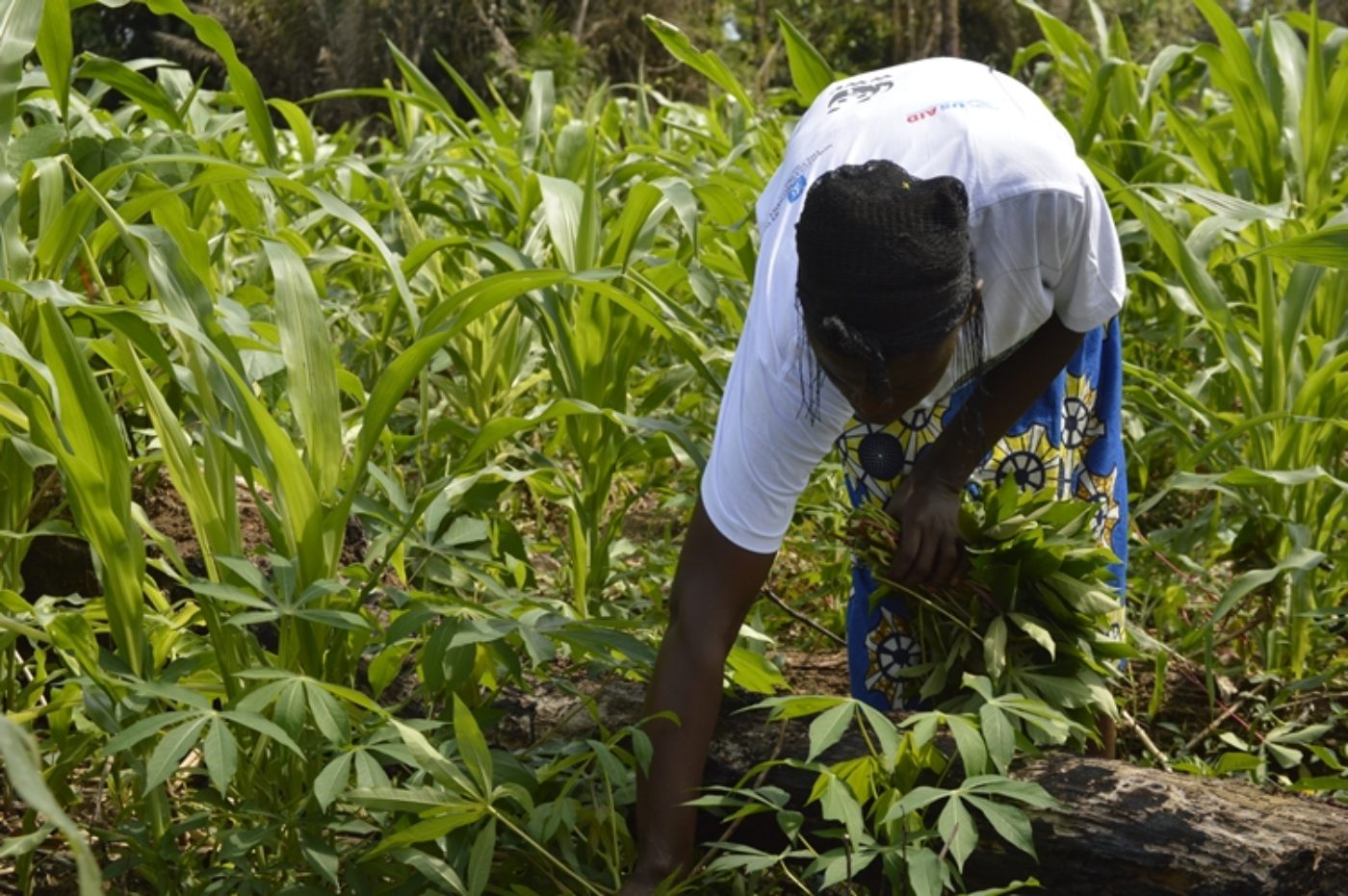
A PARCCS-supported farmer working on her field.
Emerging opportunity: agricultural production
By the end of 2019, this is how PARCCS-supported farmers were able to bring 418 tons of cassava, maize, rice, peanuts, and other food crops to Kinshasa. Donatien Nshikala Njondo, also called Nado from Dekese, reports with satisfaction: “The agricultural support has helped me change my life. I used to make a living from the hunting I practiced in the park. I learned hunting from my father and I killed all kinds of animals. It was a very dangerous life and we could only make little money. Thanks to the sale of my goods carried on the first trip, I was able to buy a motorcycle, telephones, and clothes. I really don’t feel like hunting anymore. Farming as Oxfam teaches us is far more profitable.”
Papy Gabriel Lokango lives in Bongimba in the Mai Ndombe province, on the edge of Salonga National Park. In the past, he was a buyer-reseller of bushmeat, but he prefers his new life: “thanks to agriculture, I no longer earn my living illegally”. He is one of the persons who have benefitted from Oxfam’s reviving of old oil palm plantations in Bongimba, which are now sustainably cultivated. Papy Gabriel is convinced that the community will benefit greatly from the oil palms, once they reach the production stage. For Papy Gabriel, poaching is an activity with too many hazards and uncertain benefits. With the income from the sale of his products, he plans to buy a mill that he will take home to Bongimba.
By providing people whose way of life was closely related to hunting with other livelihoods opportunities, the PARCSS program is gradually succeeding in convincing the communities of the importance of the park’s conservation. This way, the communities are the first advocates of the park.
»The agricultural support has helped me change my life. I used to make a living from the hunting I practiced in the park. I learned hunting from my father and I killed all kinds of animals. It was a very dangerous life and we could only make little money. Thanks to the sale of my goods carried on the first trip, I was able to buy a motorcycle, telephones, and clothes. I really don't feel like hunting anymore. Farming as Oxfam teaches us is far more profitable.«
Sustained livelihoods and small businesses
Other passengers on board of the ship also have their own stories to tell about how their sources of income and way of life have changed. Rose Ikopo tells, “I used to sell bushmeat, and I used to get my supplies from the hunters. However, with the scarcity of game in the forest and the restrictions against hunting, business was no longer working properly.” The PARCSS project made her discover agriculture. Thanks to the support of the project facilitators, her income from farming is far greater than what she earned from selling bushmeat. “My life has changed. Thanks to my field I am able to feed my family of 7 children without too much trouble”.
Brigitte Ipanya, a mother of eight children and grandmother was able to send her children to school and start a small business: “Thanks to this project I was able to open a pharmacy, I have a house under construction. Today, I can produce much more than in the past. I am proud of myself! ” says this energetic woman with enthusiasm, asking Oxfam and WWF to “continue to support us on this path”.
Oxfam’s activities around Salonga National Park aim to contribute to the socio-economic development of the communities. “We are very happy. We now know how to better cultivate the fields, which allows us to increase our income and invest,” says Laurence Bansanko, a resident of Dekese-Centrale who, thanks to this project, has invested for her community by building a health center.
With the restrictions brought about by the Covid-19 epidemic, the project has encouraged CLDs to sell their products on local markets. They chose to maintain grouped sales while organizing themselves with their own means.
The PARCCS project has trained more than 14,000 participants in sustainable agriculture methods. As a result, these new farmers are now better equipped to continue their activities and create the conditions for a better future. Soon, Oxfam will propose to plant diversified crops that have already given good results elsewhere, for example: cocoa, rubber, cassava, etc., which should contribute to the results expected at the end of the project in 2021.
»Thanks to this project I was able to open a pharmacy, I have a house under construction. Today, I can produce much more than in the past. I am proud of myself!«
An organised groupe sales by boat allowing farmers to transport their goods to the more profitable markets of Kinshasa.

